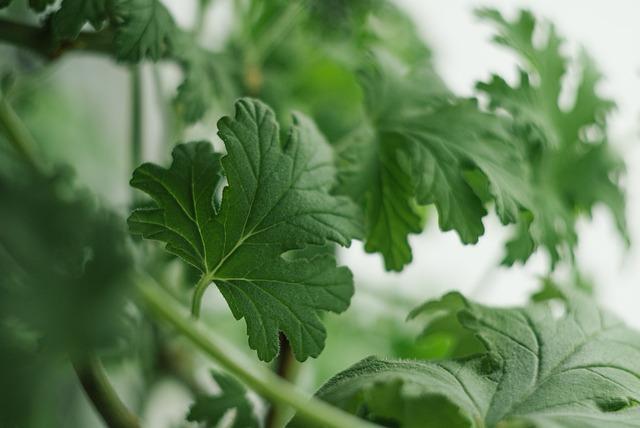Growing high-quality medicinal plants for personal use requires a blend of knowledge, patience, and attention to detail. Whether you’re cultivating herbs for their therapeutic properties or seeking to create your own natural remedies, employing effective techniques is crucial to ensure optimal plant growth and potency. Here are some essential tips and tricks to help you nurture top-notch medicinal plants in your own garden or indoor space:
Careful Plant Selection and Healthy Stock
Choosing the right plants is the foundation of successful medicinal gardening. Research the medicinal plants that are well-suited to your climate, soil conditions, and available space. Consider factors such as the plant’s growth habits, sunlight requirements, and water needs. Opt for varieties that are known for their potency and adaptability to your local environment. Some popular medicinal herbs for personal cultivation include lavender, peppermint, chamomile, and echinacea. Consider acquiring some cannabis seeds as well. Begin your medicinal garden journey with healthy seeds, seedlings, or starter plants. Select reputable suppliers or nurseries that offer quality, disease-free specimens. Inspect plants for signs of pests, diseases, or stress before purchasing or transplanting them into your garden. Healthy plants are more resilient to environmental stressors and are better equipped to produce robust medicinal compounds.
Optimal Growing Conditions
Provide your medicinal plants with the ideal growing conditions to promote vigorous growth and maximum potency. Ensure they receive ample sunlight by positioning them in a sunny spot. Use supplemental grow lights for indoor cultivation. Maintain consistent moisture levels in the soil, avoiding both overwatering and underwatering. Consider installing drip irrigation systems or using mulch to help retain soil moisture and reduce water evaporation.
Soil Preparation and Water Practices
Prepare nutrient-rich soil that provides a supportive foundation for your medicinal plants to thrive. Conduct soil tests to assess pH levels and nutrient deficiencies, and amend the soil accordingly with organic matter, compost, or fertilizers. Most medicinal plants prefer well-draining soil with a slightly acidic pH. Regularly monitor soil fertility and pH levels to ensure optimal growing conditions throughout the growing season. Water your medicinal plants judiciously, striking a balance between providing adequate moisture and avoiding waterlogged conditions. Water plants deeply and infrequently, allowing the soil to dry out slightly between waterings to encourage healthy root development. Avoid overhead watering, as it can promote the spread of fungal diseases and cause foliage damage. Use a watering wand or drip irrigation to deliver water directly to the base of the plants, minimizing water waste and evaporation.
Integrated Pest Management (IPM) and Harvesting
Implement proactive pest management strategies to prevent and manage common pests and diseases in your medicinal garden. Practice good garden hygiene by removing weeds, debris, and diseased plant material that can harbor pests and pathogens. Encourage beneficial insects, such as ladybugs and lacewings, that prey on garden pests naturally. Harvest medicinal plants at the peak of their potency for optimal therapeutic benefits. Research the ideal harvesting times and methods for each plant species, considering factors such as plant maturity, time of day, and weather conditions. Use sharp, clean tools to harvest plant material, and handle it gently to minimize damage and bruising. Employ proper drying, curing, and storage techniques to preserve the quality and efficacy of medicinal herbs for future use.
Continuous Learning and Adaptation
Stay curious and open-minded as you explore the art and science of medicinal gardening. Educate yourself about different plant species, growing techniques, and herbal remedies. You can do this through books, online resources, and hands-on experience. Keep a journal to document your observations, successes, and challenges that you observe throughout the growing season. Utilize this information to refine your gardening practices over time.
When growing medicinal plants for personal use, maintaining a pest-free environment is crucial for plant health and quality. Utilizing professional services for pest control Twin Falls can help you effectively manage and prevent pest infestations, ensuring your medicinal plants thrive without the threat of harmful pests.
Conclusion
In conclusion, cultivating high-quality medicinal plants for personal use is a rewarding journey that requires dedication, patience, and a willingness to learn. By following these tips and tricks, you can create a thriving medicinal garden that provides you with an abundant supply of potent herbs for your health and well-being. Enjoy the process of connecting with nature, nurturing your plants, and harnessing the healing power of medicinal herbs in your own backyard or indoor space.
James Martin is a passionate writer and the founder of OnTimeMagazines & EastLifePro. He loves to write principally about technology trends. He loves to share his opinion on what’s happening in tech around the world.



